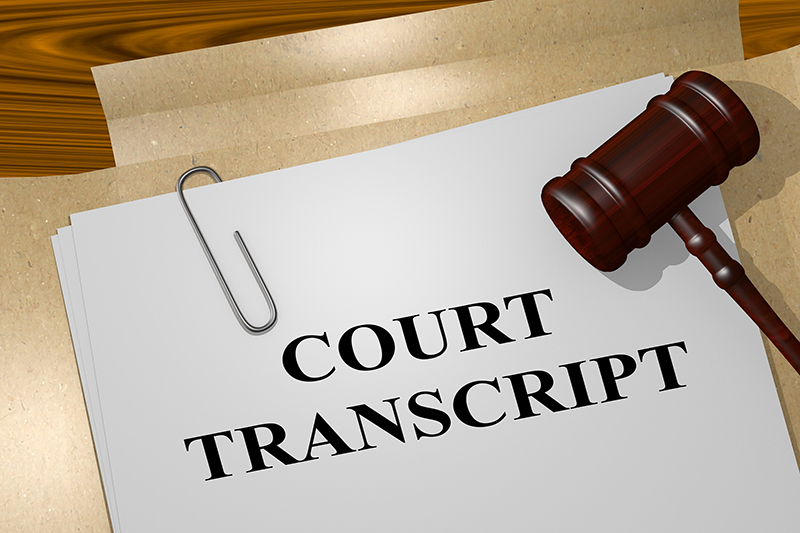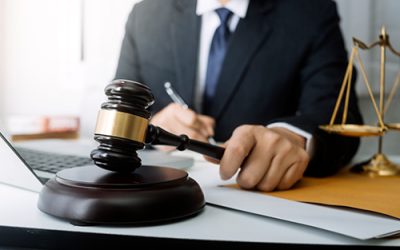
Depositions are conducted to gather facts and clarify details before the trial and can extract valuable information that would otherwise remain unknown or disputed. Deposition transcription provides courts, attorneys and their clients with a record of the event and helps the attorney prepare for further legal proceedings. Presenting an accurate and exact account of events is crucial to discover all the facts and information known to the witnesses and promote a fair trial.
A deposition allows attorneys to find out what the witness knows and preserve this testimony. The session also allows the attorney to gauge the behaviour of the witness while testifying. Accurate, verbatim legal transcription of witness testimonies can support attorneys presenting video or audio recordings as evidence in court and improve their chances of a positive outcome. Let’s take a look at what attorneys can do to produce accurate deposition transcripts.
- Pay attention to the equipment: Today, remote depositions have become the rule due to the pandemic driven social distancing requirements. This is a major challenge for most litigators. JD Supra’s survey of national court reporters who are responsible for creating accurate records that successful record of every spoken word, threw light on the “behaviour of litigators who were able to successfully conduct depositions during the past year”. The court reporters noted that the litigators used equipment that could ensure top-quality audio. Optimizing room acoustics is essential not only to maintain flow and clarity but also for accurate transcription. Before setting up the microphones, attorneys need to consider factors such as the number of speakers in the room as well as those joining online or by phone. Here are some tips to enhance audio:
- Place microphones in all strategic locations
- Use headphones that have a built-in microphone
- Test the microphone and recording device
- Make sure the microphone is placed close to the speaker’s mouth
- Minimize background distractions and sounds
- Optimize volume, use an audio limiter
- Use a sound editor
Though experienced legal transcription service providers can transcribe audio recordings in any file format, recording in MP4, MP3 or WAV.
- Advise participants on how to speak: Speakers should identify themselves before speaking and be advised not to speak over each other. If there are multiple voices, it can be difficult to make out who is speaking. The JD Supra survey reported that effective control over crosstalk during the deposition was the most frequently cited factor in creating an accurate deposition transcript. If cross-talk happens, the attorney should ask the speaker their name. To maintain a clear record in the transcript, the witness must also wait for counsel to complete a question before answering it. This will ensure a correct response to the question asked, and give the defence counsel the opportunity to object to an improper question (goldbergsegalla.com).
Prior to the deposition, deponents should be told about the importance of clear communication, including avoiding verbal utterances such as Uh Uh, Huh, an Oh Oh, Yes, No and I Don’t Understand. This is necessary to avoid miscommunication and misinterpretation, and to also speed up the deposition process by eliminating the time spent on asking for clarifications.
- Spell out unfamiliar words: While court reporters and deposition transcription service providers are well-versed in legal terminology, it’s important to spell out unfamiliar words to ensure accurate transcripts. In fact, the court reporters who participated in the JD Supra survey included this practice in their list of successful attorney behaviours. Attorneys must also take care not to speak too fast.
- Provide the court reporter with the necessary information in advance: To help court reporters with accurate transcription, attorneys should provide detailed information about the case ahead of time, including spelling of participants’ names, place names, and technical terms. Where possible, digital exhibits should be pre-marked and uploaded in advance. The court reporter should also have access to documents referenced during the deposition. One Attorney can also help court reporters by going over the exhibits and unusual spelling after the deposition is over. In fact, this was cited as an example of successful attorney behaviour by a respondent during the JD Supra survey.
- Leverage advanced technology: Proper technology to conduct depositions includes internet, camera, lighting, and sound. Using AI-based automatic speech-to-text recognition (ASR) can speed up the deposition transcription process. Advanced tools also provide a precise timeline of events as they took place in the deposition and also allow attorneys to access and search digital transcripts and share them securely. To ensure accuracy, it’s important to have the machine-generated documents checked by an experienced legal transcription service It would be ideal if the attorney can manage the technology used to conduct the deposition. If not, they can have an associate or a paralegal to assist with technology, screen share exhibits, and annotate and introduce them in the right order.
Preparing well is important to conduct a successful and efficient deposition. Appropriate technology and avoiding distraction in the surrounding remote environment is also crucial to ensure accuracy and clarity in deposition transcription.



